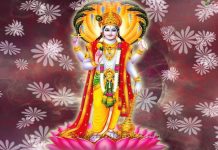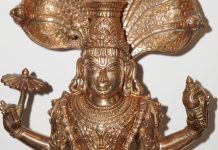Vaishnavism, one of the major traditions within Hinduism, holds a prominent place in the tapestry of Indian spiritual and philosophical thought. With a rich history spanning thousands of years, Vaishnavism has influenced not only religious practices but also cultural, artistic, and social aspects of Indian society. This article delves into the core philosophy, beliefs, and practices that define Vaishnavism, shedding light on its significance and impact.
Philosophical Foundation
At its heart, Vaishnavism is a devotional and monotheistic tradition, centering its worship on Lord Vishnu, the preserver and sustainer in the Hindu trinity. Adherents of Vaishnavism, known as Vaishnavas, view Vishnu as the ultimate reality and the source of all creation. The philosophy of Vaishnavism is rooted in the ancient scriptures, particularly the Vedas and Upanishads, as well as the Bhagavad Gita and the Puranas.
The concept of “bhakti,” or devotional love, is a cornerstone of Vaishnavism. Practitioners cultivate a deep personal relationship with Vishnu through acts of worship, prayer, and selfless service. The ultimate goal is to attain moksha, liberation from the cycle of birth and death, by surrendering to the divine will and seeking union with the supreme consciousness.
Beliefs and Deities
Vaishnavism encompasses a diverse array of beliefs and deities, with different sects emphasizing various aspects of Vishnu’s manifestations. Some prominent forms of Vishnu worshipped within Vaishnavism include:
1. Lord Krishna: Revered as the divine cowherd and charioteer, Krishna is celebrated for his role in the Bhagavad Gita and his captivating childhood tales in the Bhagavata Purana.
2. Lord Rama: Portrayed as the ideal king and embodiment of righteousness, Rama’s life and adventures are chronicled in the epic Ramayana.
3. Lord Narayana: Often depicted as the cosmic form of Vishnu, Narayana represents the universal aspect of divinity.
4. Lord Venkateswara: A popular deity in South India, Venkateswara is considered a form of Vishnu that grants blessings and fulfills devotees’ wishes.
Practices and Rituals
Vaishnavism encompasses a range of practices that facilitate a devotee’s connection with the divine. These practices can vary based on regional customs and sects but generally include:
1. Bhakti Yoga: The path of loving devotion, where followers engage in rituals, prayers, and chants to express their love and devotion to Vishnu.
2. Temple Worship: Vaishnavas visit temples to offer prayers, perform rituals, and participate in community events. Temples often house elaborately adorned idols of Vishnu and his avatars.
3. Festivals: Numerous festivals are celebrated within Vaishnavism, such as Diwali, Janmashtami (Krishna’s birthday), and Rama Navami (Rama’s birthday). These celebrations involve rituals, processions, storytelling, and feasting.
4. Satsang: Devotees gather for spiritual discourses, singing devotional songs (bhajans), and engaging in discussions about the scriptures.
Influence on Culture and Society
Vaishnavism has left an indelible mark on Indian culture and society. Its influence extends beyond religious rituals and practices to encompass art, literature, music, dance, and social norms. The stories of Krishna and Rama have inspired generations of poets, writers, and artists, resulting in a rich cultural heritage.
Moreover, Vaishnavism’s emphasis on compassion, selfless service, and devotion has contributed to the development of a strong philanthropic ethos within Indian society. Many Vaishnavas actively engage in charitable activities, contributing to the welfare of the less fortunate.
in conclusion, Vaishnavism, with its profound philosophy, devotion-centered practices, and diverse deities, offers a unique lens through which to explore the complexities of Hindu spirituality. As a tradition that celebrates the union of the individual soul with the divine, Vaishnavism continues to inspire countless individuals to seek a higher purpose and engage in acts of love, service, and devotion. Its enduring impact on Indian culture and its universal message of compassion make Vaishnavism a cherished and vibrant tradition within the tapestry of world religions.



























































